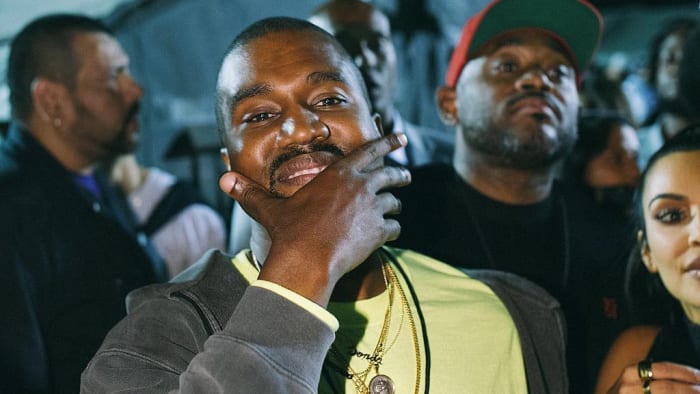Note: This piece was originally a guest editorial for DJBooth.
Spotify, Pandora, Google, and Amazon announced last week that they would appeal the Copyright Royalty Board’s (CRB) recent decision to increase the streaming royalty rate paid to songwriters. Their announcement is a stark reminder of the difficulties songwritersface in getting paid and was immediately slammed by the National Music Publishers’ Association (NMPA), the industry trade group representing music publishers.
In a joint statement about their intent to appeal, Spotify, Google, and Pandora said:
“If left to stand, the CRB’s decision harms both music licensees and copyright owners. Accordingly, we are asking the U.S. Court of Appeals for the D.C. Circuit to review the decision.”
The basis of the streaming services’ claims is not yet clear, but what is clear is their disingenuousness. They are claiming that harm will be done to copyright holders, but the real victims will be songwriters and music publishers. By appealing, the streaming services show that they don’t care about creators, and only intend to protect their profits.
NMPA President and CEO David Israelite issued a statement in response to the streaming services:
“When the Music Modernization Act became law, there was hope it signaled a new day of improved relations between digital music services and songwriters. That hope was snuffed out today when Spotify and Amazon decided to sue songwriters in a shameful attempt to cut their payments by nearly one-third.”
The constant grumbling about low payouts from streaming services usually centers on the rates that performing artists receive in connection with their masters. While acknowledging that those rates could be higher, the conversation typically leaves out the rates paid to songwriters for the use of their material, and those rates are lower.
This is a common blind spot, as consumers tend to notice the recording artist and not the songwriter. Recording artists can be seen and heard, but songwriters work in the background and are often overlooked. It was only last year that Spotify first began to display songwriting and production credits on their desktop app.
The issue for songwriters can be traced all the way back to 1909, when Congress first passed a federal copyright law. At the time, the music business was essentially just music publishing, and Congress wanted to prevent a monopoly. To do so, they created a compulsory license that allowed anyone to use a song, as long as the songwriter was paid a set rate.
This was a well-meaning attempt by Congress to constrain a music publishing monopoly, but it actually took away songwriters’ and publishers’ ability to negotiate rates based on fair market value. That 1909 decision still impacts modern-day songwriters in two ways:
The glacial pace by which songwriting royalties have changed since then means that songwriters’ compensation lags far behind that of recording artists.
Songwriters don't get to negotiate rates whenever a new technology appears, putting them at a major disadvantage to streaming services.
The NMPA statement continues:
“The CRB’s final determination gave songwriters only their second meaningful rate increase in 110 years. Instead of accepting the CRB’s decision which still values songs less than their fair market value, Spotify and Amazon have declared war on the songwriting community by appealing that decision.”
Ironically, the music industry had recently found peace. When the Music Modernization Act (MMA) was passed into law late last year, the industry celebrated a hard-fought legislative victory that introduced a sweeping set of changes. The legislation covered a variety of issues and affected a wide cross-section of the industry. Songwriters, record companies, featured artists and owners of master recordings made prior to 1972, producers, mixers, and engineers all saw benefits from the law.
While not among the specific changes made by the Music Modernization Act, the CRB rate decision came at the same time and signaled a willingness on the part of the federal government to continue the reforms to copyright law that were embodied by the MMA. Most importantly, the CRB announced that the rate paid to songwriters/publishers in connection with streaming revenue would increase from 10.5 percent to 15.1 percent over the next five years.
This 44 percent increase represents the biggest change in songwriter royalty rates since 1981 when the statutory mechanical rate was increased by 45 percent from 2.75 cents to four cents. Prior to 1978, the rate was two cents—unchanged since US copyright law was first written in 1909!
By appealing the CRB ruling, the streaming services are jeopardizing that 44 percent increase, saying that:
“The Copyright Royalty Board (CRB), in a split decision, recently issued the U.S. mechanical statutory rates in a manner that raises serious procedural and substantive concerns.”
It’s surprising that anyone would suggest that there are “procedural and substantive” concerns when the CRB issued preliminary rates in January 2018. The Copyright Office subsequently confirmed those rates in February 2019 after reviewing thousands of pages of documents, testimony from multiple witnesses, and listened to public comment on the issue.
The pushback from the streaming services shows the extent to which they will fight to prevent higher rates for songwriters. Their flimsy statements about “process” suggest their desperation at having to pay what songwriters deserve.
The rates that songwriters and publishers receive have always lagged behind the rates paid to recording artists and master owners. Due to the nature of copyright law, songwriters can’t negotiate their rates as easily and have traditionally had to wait for the government to catch up.
The CRB’s new rates go a long way toward solving those problems, and it is shameful that the streaming services now want to take away the money that songwriters and publishers have rightfully earned.
For insider tips about the music business, subscribe to my newsletter and get a free ebook: Listen Up! A Simple Guide To Getting Heard On Spotify.



